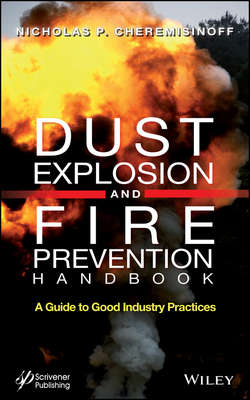Описание книги
This handy volume is a ready “go to” reference for the chemical engineer, plant manager, process engineer, or chemist working in industrial settings where dust explosions could be a concern, such as the process industries, coal industry, metal industry, and others. Though dust explosions have been around since the Earth first formed, and they have been studied and written about since the 1500s, they are still an ongoing concern and occur almost daily somewhere in the world, from bakeries to fertilizer plants. Dust explosions can have devastating consequences, and, recently, there have been new industrial standards and guidelines that reflect safer, more reasonable methods for dealing with materials to prevent dust explosions and resultant fires. This book not only presents these new developments for engineers and managers, but it offers a thorough and deep coverage of the subject, starting with a complete overview of dust, how it forms, when it is in danger of exploding, and how this risk can be mitigated. There is also a general coverage of explosions and the environments that foster them. Further chapters cover individual industries, such as metal and coal, and there is an appendix that outlines best practices for preventing dust explosions and fire and how these risks can be systematically mitigated by these implementations. There is also a handy glossary of terms for easy access, not only for the veteran engineer or chemist, but for the student or new hire. This ready reference is one of the most useful texts that an engineer or chemist could have at their side. With so many accidents still occurring in industry today and so many hazards, this volume pinpoints the most common and easiest ways for the engineer to go about his daily business safely, efficiently, and profitably, with no extraneous tables or theoretical treatises. A must have for any engineer, scientist, or chemist working with materials that could result in dust explosions or fire.
